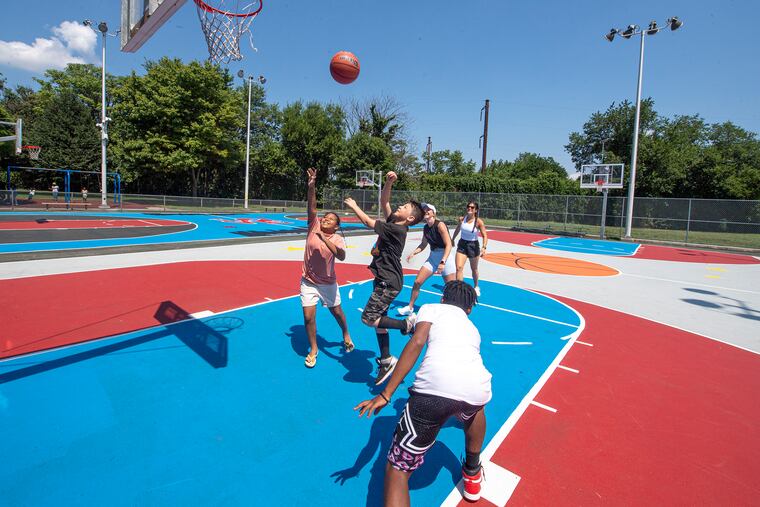Just let them play: Creative play develops children’s brains
Play develops social and emotional skills, builds the part of our brain that is responsible for planning, problem solving, and organizing, and enhances self-esteem.

Ever feel as if your days are scheduled from the moment you wake up until the moment you go to sleep?
Is your child involved in after-school sports and activities that keep you busy running them around?
If they’re not participating in an activity, then they’d better be doing their homework, right? Otherwise, what kind of parent are you?
And what about our kids? If they don’t do “all the things,” how will they be successful?
Well, what if I told you the No. 1 way to boost your child’s brain development is actually to do the opposite of what we’ve all been doing: Just let them play.
And when I say play, I don’t mean get out that board game and make sure everyone follows the rules. What I mean is unstructured play led by your child. I’m sure many of you, if you’re anything like me, just got hives reading that. But the research is clear: Creative play, and even physical play or “roughhousing,” develops the brain.
Play develops social and emotional skills, builds the part of our brain responsible for planning, problem-solving and organizing, and enhances self-esteem. Playtime is an opportunity for children to explore their natural reactions and impulses, experiment with their social skills to see whether they’re met with a positive or negative reaction, and find ways of solving their own problems.
Research has shown that self-directed learning, such as that associated with unstructured play, enhances a child’s brain by building and expanding neuronal pathways. Animal studies have even shown that playful young rats demonstrate more competent social skills as adults.
Have you ever heard your toddler participate in imaginative play, for instance pretending they’re at “school.” As you listen, you may hear them test communication skills: “I need you to sit down, please.” Or maybe they experiment with emotion management: “I’ve told you three times to sit down, now I’m getting upset!” All of this play is practice, and practice is learning.
An article in the Journal of the American Academy of Pediatrics highlights play as being essential to the development of creativity, resilience, and cooperation skills. All of these skills have been linked to improved behavior, higher academic performance, and better attitudes about school.
From the brain perspective, this means enhanced brain structure and function of the whole brain with growth specifically in the area responsible for executive functions (the process of learning, rather than the content).
So you may be thinking, “This is great, but how do I make sure my kids use play to learn and not just destroy my house?” Although I did say that unstructured play is the way to go, for those, like me, who prefer not to leave things up to chance, here’s how you can guide without directing:
Use teachable moments. When your children come to you with a disagreement, encourage them to work it out on their own. Help them with communication strategies and how to think about the problem, but try not to solve the problem. For example, you could talk to your children about how to problem solve (identify the problem, think of actions you can take, consider the consequences of those actions, try one).
Use reflective questioning to build abstract thinking. This style of questioning requires kids to think for themselves. Instead of giving kids the answers, ask them what they think they should do. Instead of saying, “why don’t we” or “you two need to,” ask a question instead. “What do you think you should do?” “Why do you think she said that?” “How did that make you feel?” Kids will have to generate their own responses, and these questions develop social and communication pathways in kids’ brains more than being told what to do.
Participate, don’t fix. Allow your child to make up new rules, play things out of order, use toys in new and different ways. Comment on and engage in what they’re doing. “I never thought to play the game this way, this is fun!” Try not to correct or criticize. Remember, half of learning is failing and then fixing it yourself.
Sarah Allen is a pediatric neuropsychologist and author of the international best-seller “Raising Brains.”